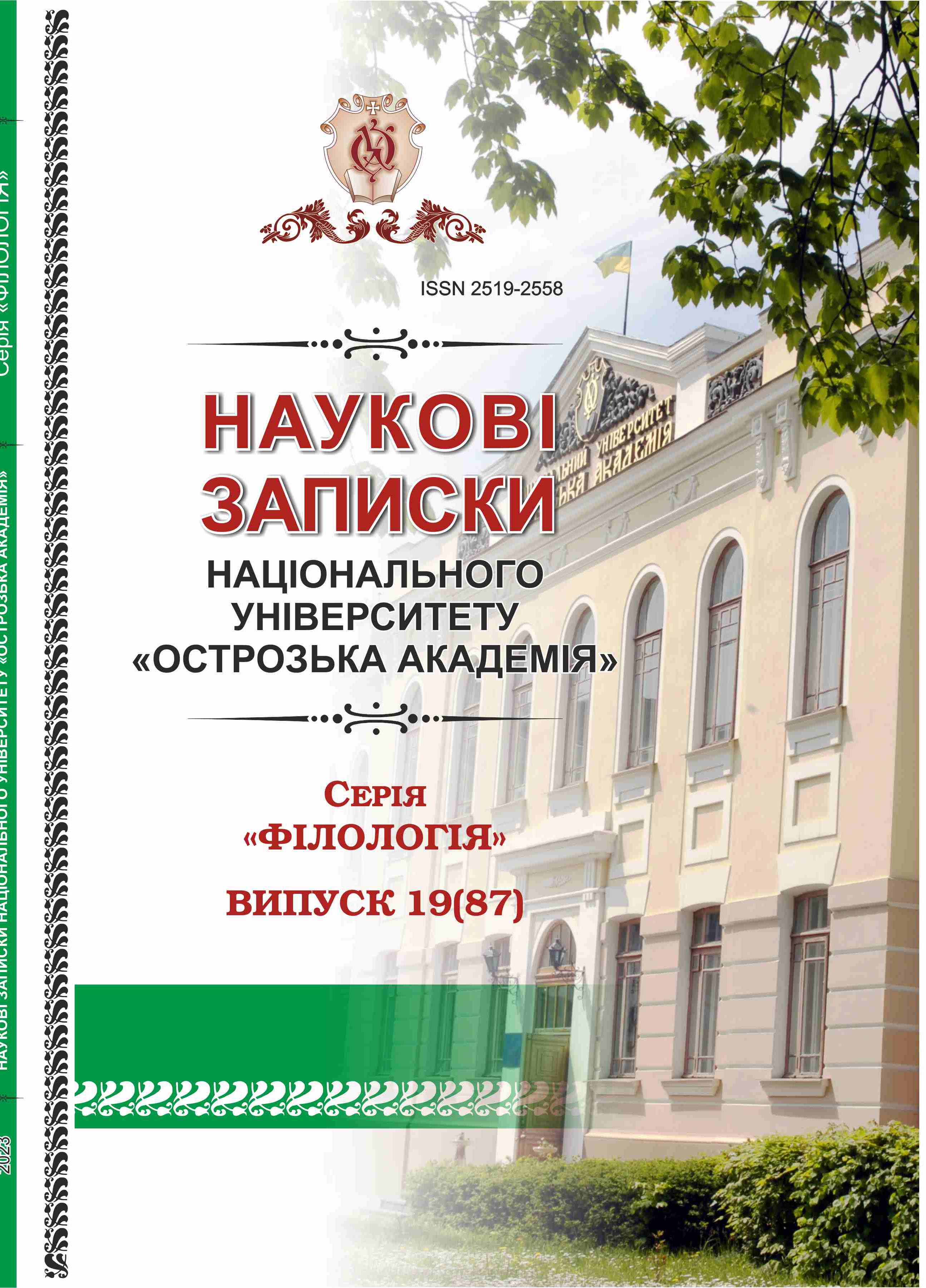PHRASEOLOGIES WITH A COMPONENT-TEKNONYM IN MODERN ENGLISH AS AN INTEGRAL PART OF LINGUISTICS DEALING WITH STABLE WORD COMBINATIONS CHARACTERIZED BY A SPECIFIC TRANSFERENCE OF MEANING
Keywords:
phraseological unit, phraseologies, teknonym, lexical and semantic background, anthropogenic, natural, intentional aspectAbstract
The article is devoted to identifying the main theoretical aspects of the existence and functioning of teknonyms in the phraseology of modern English languages. An analysis of the correlation between lexical (plan of expression) and semantic (content plan) basis of phraseological units is presented. Also, a brief classification of phraseological units with a component-teknonym based on lexical and semantic basis is provided.
This work considers the basics of defining the essence of the concept’s «phraseologies» and «teknonym» and their properties. Phraseology-teknonyms as a subgroup of phraseology terminological origin are described. The focus is on the nominative volume of English phraseology-teknonyms, which is represented by the lexical basis, namely by the following thematic groups: «mechanisms and structures», «tools and materials», and semantic basis: «type and application of matter», «behaviour and state of matter»; anthropogenic, natural and intentional aspects are analyzed phraseology-teknonyms.
Based on the well-known semiotic triad of C. Peirce, iconic, indexical and symbolic were distinguished as phraseological units. An analysis of potential dangers and measures was carried out to overcome them.

